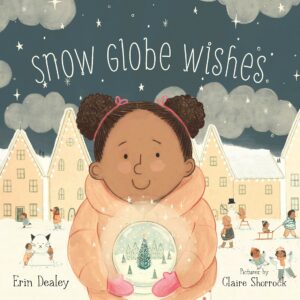
Today it’s my pleasure to interview Huda Essa, author of the upcoming picture book COMMON THREADS: ADAM’S DAY AT THE MARKET (Sleeping Bear / August 2019 / Illustrated by Mercè Tous.), and founder of Culture Links LLC. Both her books and her work revolve around encouraging others to celebrate our similarities instead of dwelling on our differences.

In COMMON THREADS, Adam and his family spend an exciting day at the colorful and bustling Eastern Market. But when Adam gets briefly separated from Mom and Dad, he mistakes a friendly, diverse cast of characters for his parents in their traditional Muslim clothing–and shows that we all have more in common than you might think.
This nearly-wordless picture book celebrates #diversity and community in vibrant, dynamic art.
I love that Huda teaches others to “…utilize our diversity as the great asset it is.”
Q1. What was your inspiration for writing COMMON THREADS: ADAM’S DAY AT THE MARKET?
Huda Essa: Through my work, I have come upon many misconceptions that people have about various forms of cultural and religious dress. When I share images of the many similarities of these forms of dress, participants are pleasantly surprised. I realized more and more that we need to be explicitly taught to look for common threads that bind us together in our shared humanity. Talking about our similarities and our differences helps to increase knowledge and understanding that allows us to utilize our diversity as the great asset it is. It’s my hope that COMMON THREADS will to give adults and children alike, a resource to use to foster invaluable discussions around diversity and inclusion.

PS To Teachers, Librarians, and Parents: The “Becoming a Cultural Detective” back matter in COMMON THREADS looks like a very cool extension activity and writing/discussion prompt.
Q2. Your self-published picture book, Teach Us Your Name, seems like an excellent story for teachers to share at the start of the school year. How did this book come about? Did the TED talk come first?
Huda Essa: TEACH US YOUR NAME was written before my TED Talk and after experiencing the wondrous advantages of not only learning to pronounce my students’ names, but to also allow them to share the story of their names. For several reasons, I grew up despising my name. I now realize that this led to the loss of enlightening my peers and others with stories that increase our knowledge, connections, and understanding of others. I also missed out on the opportunity to learn from their names, as well.
“Our names allow us to discuss ideas such as language, family history, cultural traditions, social identities, and so much more!”
I am honored to have learned that many people have shared my TED Talk in staff meetings and classrooms as well as social media to get the conversations started. Immediately after viewing the video, people were eager to share their story and learn from others. The reverberating effects of those conversations increased motivation to engage in more opportunities to learn and to build connections within and beyond school communities. Along with my book, people can also find a free downloadable document with activities and discussion guides at culturelinksllc.com
Q3. Would you please teach us your name?
Huda Essa: Huda is pronounced like the word “hood” and then the short e sound at the end. Hood – eh My last name, Essa, rhymes with Visa. The pronunciation of my name is also on the cover of Teach Us Your Name to encourage others to do the same if their name is commonly mispronounced.

Q4. Can you share a positive teacher or student reaction or aha moment that you experienced in working with schools through your foundation, Culture Links?
Huda Essa: The most common reactions I receive are ones recognizing that learning about culturally responsive practices can add value to our lives in countless ways.

Many people are unaware of the impacts of unintentional, learned unconscious biases.
Huda Essa: Learning what our biases are and how they are formed gives us the power to take control of our thoughts, allowing us to work through potentially negative outcomes, and create positive relationships. This greatly enhances our ability to support not only our communities, but the world, as a whole. It’s wonderful when participants leave feeling more confident and aware of how they can help to make our world a better place for all.
Q5. If you had a magic snow globe that could grant one wish, what would your Snow Globe Wish be?
Huda Essa: I would wish for a world where social justice is valued and positively experienced by all.
Thank you, Huda.
Full disclosure: I asked Huda Q5 because I’m so excited about my picture book, also from Sleeping Bear Press, SNOW GLOBE WISHES with wonderful illustrations by Claire Shorrock. (Pre-orders have begun!) The main character of my book would LOVE Huda’s wish for #inclusion and social justice. And so do I!

Thank you, Huda, for stopping by the blog and sharing such important messages with us.
To learn more about Huda Essa, her books and work, go to CultureLinksLLC.com and follow her on Twitter @culturelinksllc and Facebook.
As we gather for the 4th of July, I wish for one and all, a world where we celebrate our COMMON THREADS.

Comments Off on Meet #kidlit author Huda Essa
No comments on this post yet.